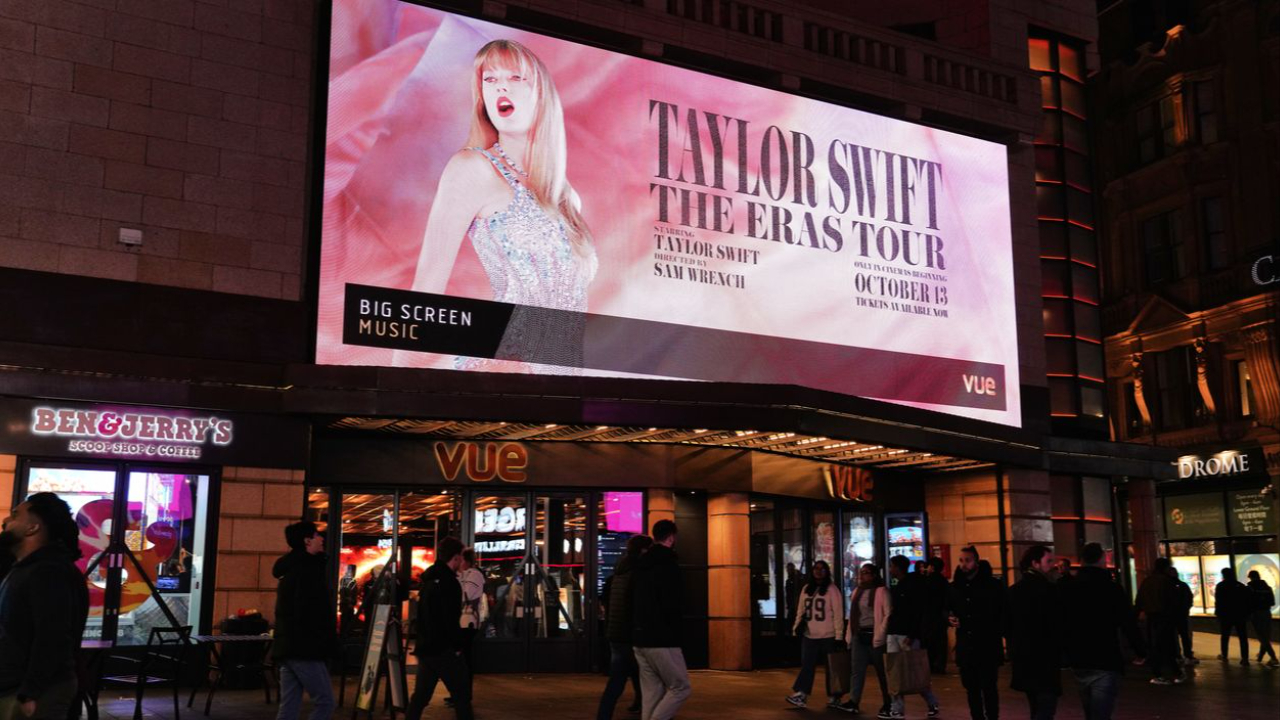Choosing the right brand for you
Mar 25, 2022
In order to be visible in the world and build awareness about your work, in an effective way it’s useful to know firstly, which type of brand you’re building; a personal, business or hybrid (personality driven) brand. Each type of brand builds awareness of itself in a slightly different way and has different visibility challenges associated with it.
Let’s run through what they are.
A personal brand
A personal brand is a brand that focuses on the individual, the founder, or leader of the organisation. There’s a heavy emphasis on sharing your name, face, personal experiences and expertise.
The benefits of a personal brand include:
- Personal connection. People like to connect with, and buy from, people rather than organisations. The connection factor means it can be easier to gain attention via a personal brand than a business brand because people are connecting with a face, a voice, a person, rather than with an abstract concept. (Hence the gazillion reels and videos you see of people doing attention grabbing things on socials. It’s about stopping the scroll first and foremost and then keeping people on your account through relatability and connection.)
- It’s easier to breed loyalty when people know your face, than to breed loyalty with a concept or logo or product. (Business brands can give the impression of anonymity even when there are a great many people behind the scenes making things happen.)
- Flexibility. After years of discussing this with my students, I’ve concluded that this is the number 1 reason people are attracted to the personal brand (I certainly was when my business was branded as ‘Samantha Nolan-Smith’). If you’re unsure of the topic you wish to focus on or the niche you wish to occupy, it can be better to start your business as a personal rather than business brand. This gives you space and time to experiment with your messaging and offerings, before making a final decision about the direction of your business.
There are, however, downsides to personal brands. They include:
- No clear line between personal and professional. There is a good amount of pressure to share a lot about yourself if you’re building a personal brand. If you’re comfortable taking lots of selfies and turning on the video as you’re making your breakfast, having a cup of tea, or going to the movies, then a personal brand might be right up your alley. If on the flip-side, you prefer a bit (or a lot) of anonymity in your life, don’t care to have your face splashed all over the internet, and don’t always want to be sharing random snippets from your life, a personal brand might sound nightmarish to you.
- Personal brands can also come across as less professional which can be both a strength and weakness in business. Ultimately this is a perception issue which differs according to your ideal customer and the type of product or service you’re offering. People in the coaching space will often opt for personal brands because when you’re buying coaching you’re not just buying a coaching style, you’re buying the coach as well. The fact that the coach doesn’t come across as professionally as the Hilton Hotel chain for example, either doesn’t matter to the coach’s clients or works in the coach’s favour because an overly professional coaching brand can feel sterile and impersonal. High end luxury brands on the other hand, are rarely personal brands. They use influencers to showcase use of their products, but the brand itself is normally a business one. They want to exude professionalism and the fact that their founder or CEO is relatable or vulnerable or funny isn’t normally a determining factor when you’re paying for a high end product. So remember to match your brand type to your customer and product type.
- You’re enmeshed in your business. A personal brand is, by its very nature, building something that the name of the brand is completely tied to. So if you decide to step aside, the longevity of the brand is at risk, if not certainly at an end. Therefore, if you’ve got dreams of retiring early or of building something that lasts beyond your lifetime, you really want to think twice about whether a personal brand is the ideal brand for you.
Visibility challenge
For a personal brand to work, you have to be willing to share a lot of yourself and you have to be comfortable showing up often on a platform - be it socials, emails, on your YouTube channel, podcast show, or in another public forum of some sort - as people become dependent on seeing you regularly.
A business brand
A business (or corporate) brand focuses on the organisation itself, on the values of the organisation, the offerings, the environment or atmosphere you might connect with that brand. A brand identity is created around an entity that’s separate to any one individual. Think of Tiffany & Co or Ford Motor Company, Patagonia or Oxfam. They all have organisational brands which are designed to exist beyond the lifetime of any one individual.
The benefits of a business brand include:
- You don’t have to be sharing tidbits about yourself and your life 24/7. As the founder, you can stay focused on building the business and leave the marketing to the experts. Therefore, if you prefer your work to be at the forefront of your marketing efforts - as opposed to putting yourself at the forefront - then the business brand is definitely an option to consider.
NB: If you’re a creative, this statement doesn’t apply to you. Creatives generally build what I’ll call a creative brand. This looks like branding under their own name or under their name with their trade behind it eg; ‘Jon Belford Photography’ or ‘Amara Jordan Art’. What you see as a consumer of their marketing however is not a whole lot of insight into their personal lives but a whole lot of their work. Wildly successful creative brands have been built off the back of names alone. This is because people like buying artwork or novels that have been created or written by particular individuals, but they don’t always need to know the ins and outs of their private lives in order to make a purchasing decision. - The business brand is easy to sell. Because it’s built to last beyond the lifetime of any individual, the people managing the business can come and go but the brand persists. It can pass from owner to owner or list on the stock exchange, or it can change into an entirely different legal entity without there being too much impact on the brand identity itself.
- It can be easier to position yourself in the market with a business brand. Think of when you’re scrolling through socials. Let’s say you’re looking for information about organic food and there are two companies that are just starting out. One is called ‘Organic food’ and one is called ‘Cherie Goodwin’. If I’m interested in learning more about organic food and I happen to scroll past an account called ‘organic food’ I'm immediately going to stop and take a look at the kind of information they share. If I happen to see a picture of Cherie Goodwin on the other hand, at first glance I may have no idea that she’s all about organic food. (Some people overcome this by leaning predominantly into the personal brand with a nod to the business in the title. Our friend Cherie might do that by naming her business Cherie Goodwin Organics for example.)
- If you happen to be building a movement of some sort, I personally think a business brand is preferable to a personal brand. Because of the collective nature of movements, people want to buy into a concept more than they do an individual. For example, there’s a movement that was started in Australia called Earth Hour. It started in one city - Sydney - with a simple idea; turn off your lights for one hour on a specific day in support of climate change action. More than 2.2 million people and 2,000 businesses participated in that first event. Since that time, the event has grown with millions of supporters in more than 185 countries. Now imagine if that brand had been called Andy Ridley (one of the co-founders of Earth Hour). It doesn’t really have the same ring to it, does it? Choose the right name and it can massively enhance the strength of your brand. Just think of Google. An entire new verb was created off the back of that highly successful business brand!
The downside to creating a business brand is:
- It can be perceived as boring or un-relatable. If you don’t lean heavily into your message, your values, and/or your brand’s personality, it can be more difficult to create a connection with your customers when you have a business brand, than when you have a personal brand. Think about some of those really stuffy corporate brands that have zero personality to them. Who really wants to do business with such an organisation? People like personality, even in their business brands. So if you’re going to build such a brand, be sure your brand has a bit of life in it.
- You’re stuck with a topic. Let’s say you spend the next five years building a business brand ‘Queer Financial Services’. After five years you’re feeling quite run down and want to scale back, or perhaps you’re ready to expand and branch out to offer services that are about more than just financial management, or you’ve shifted your ideal customer to exclusively support the trans community rather than the entire LGBTIA community. Suddenly you’re stuck with a name that doesn’t quite fit your offering. Of course you can pivot and change the name of your business and people do that all the time, but it’s not an ideal brand experience for your customers. You’ll likely have to rebrand entirely and enter into a whole customer education and marketing campaign to keep people on board with your changes. All of this is managed quite a bit more gracefully with a personal brand where brand ‘Ruby Johnson’ can simply announce to her community that she’s branching out, put a new sales page on her website, and start selling that product.
Visibility challenge
For a business brand to work, the challenge is to make the anonymous nature of the brand feel more relatable and personal. You want people to build a personal connection to your brand in the absence of a specific individual for people to attach to.
A hybrid brand
Finally, there’s the hybrid model - a personality driven brand that is separate from the founder’s identity, but it is highly reliant upon the founder being visible to promote and champion the brand. We adopt this approach at the School of Visibility where I, Samantha Nolan-Smith as founder of the brand, am visible in support of promoting it. I share occasional snippets from my life as they pertain to our topic of visibility but on the whole my visibility efforts are directly entirely toward promoting the business and its vision.
The benefits of the hybrid approach include:
- It brings with it many of the benefits of the personal brand, with fewer downsides. It puts the founder at the front of the brand but uses the company name rather than their own (this can be an attractive proposition if you have a name that’s difficult to remember or spell). It requires the founder or CEO to be visible and act as an ambassador for the brand, but if the founder steps aside, the brand is able to continue without them. (Think of the continuation of Apple beyond the life of Steve Jobs as an example of what this looks like in practice.)
- The nature of visibility required of the founder is entirely different to that of the personal brand. The focus of the founder’s visibility efforts are on spruiking the brand, the message, the products, as opposed to selling themselves. For people who like their privacy, this can be a comfortable fit, requiring them to step forward on behalf of the brand to promote the business, whilst maintaining anonymity in their personal lives.
- It creates a good point of differentiation in the market by virtue of people feeling connected to the founder or ambassador(s). It’s difficult to copy a personality and so, with the right kind of founder, this can be an excellent brand option. Imagine five corporate brands in front of you. Four of them are straight business brands. They might have strong brand values and messaging in their various forms of communication, but you don’t know any of the people behind the brand. Then there’s the fifth brand which is also leaning into their brand values and messaging plus they have a charismatic founder who is regularly visible and recognisable (think Richard Brandon and Virgin as an example of this in the market). Which would you choose?
The downsides of a hybrid brand aren’t as stark as the personal and business brands by virtue of the fact that it was designed to overcome the challenges of each. However you do need to be aware that if and when the face of your brand steps away, there will be some sort of impact on the brand which will need to be managed. If the founder or face of the brand has done their job correctly though, they will have been directing people’s attention toward the brand itself each time they’ve been visible, rather than on themselves as individuals, which will have paved the way for a relatively smooth transition.
Visibility challenge
The visibility challenges of the hybrid model relate primarily to the likability and/or memorability of the founder. You want to ensure that the face of the organisation is someone that your ideal community can relate to. Ideally they’re a living, breathing embodiment of the values and promise of your organisation. They also need to be able to speak articulately about your brand’s vision, values, products, and/or services. If they’re lacking enthusiasm for the brand or present in a way that’s inconsistent with it - whether that’s in the way they speak, the way they dress or communicate, what they speak about, or how they conduct themselves when spotted in public places - you might think twice about adopting this model.
Ultimately there’s no ‘right’ branding approach. There’s simply the approach that aligns with your vision, your intentions for the business, and your visibility preferences. As you read back through the pros and cons of each you'll likely have a sense of what either rules something in as a good option for you or rules it out as a definite no. Start there and build out your visibility strategy accordingly.
This article was extracted from The Visibility Strategy Kit, a day-by-day approach to building a visibility strategy.





